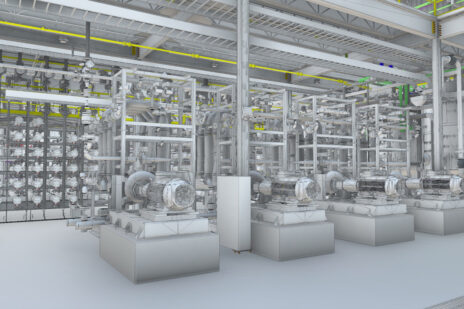
For nearly 25 years, Workshop/APD’s core mission has been to create design solutions that solve their clients’ unique challenges. The firm relies on the Autodesk AEC Collection to take advantage of AutoCAD and Revit. AutoCAD is an integral component of Workshop/APD’s workflow to create the details that make their designs stand out from the rest. And that is definitely on display with their recent work for Post House in Brooklyn, New York.
Post House is an 11-story condominium complex of 41 units and two connected townhouses. But unlike many of the condo high-rises cropping up, this project’s outward aesthetic is decidedly historic. Located on the site of a former post office built in 1925, the new building is inspired by the Art Deco past.

Designing the façade with AutoCAD
Workshop/APD relied heavily on AutoCAD to study the façade, determine the right window design and placement, and explore other aspects of the exterior.
“Using AutoCAD and creating dynamic blocks really sped up things for us because we were able to group windows on multiple levels,” says Brook Quatch, senior design director, Workshop/APD. “We could test different types of detailed conditions—whether it was the number of steps we wanted on the brick façade or how deep the windows and sills would be. We could even look at the number of divided lights.”

Relying on precision of AutoCAD
But the attention to detail wasn’t reserved just for the facade. Detailed work for both the exterior and interior were also incredibly important.
“We use AutoCAD in a way where it allows that precision for us to differentiate the complexities of what goes into a roof or a waterproofing detail,” Quach says. “For example, we added small details in the kitchens in the Post House that set them apart from what you’d expect—even with a typical framed cabinet door. With the precision of AutoCAD, you can easily make things much more detailed.”

Read more
Discover more about Workshop/APD, Post House, and how AutoCAD makes a difference in the full article on Autodesk.com.


